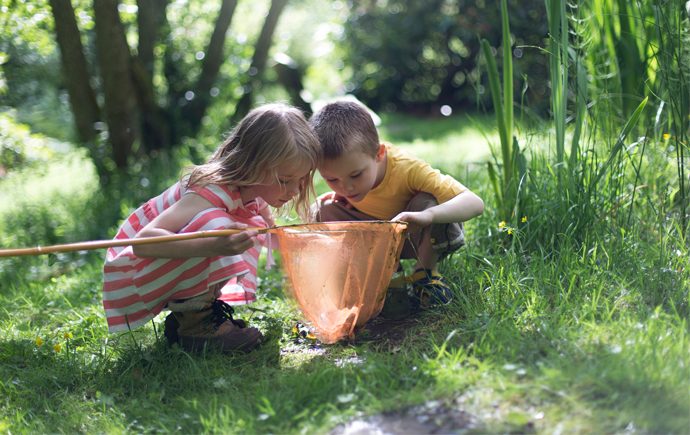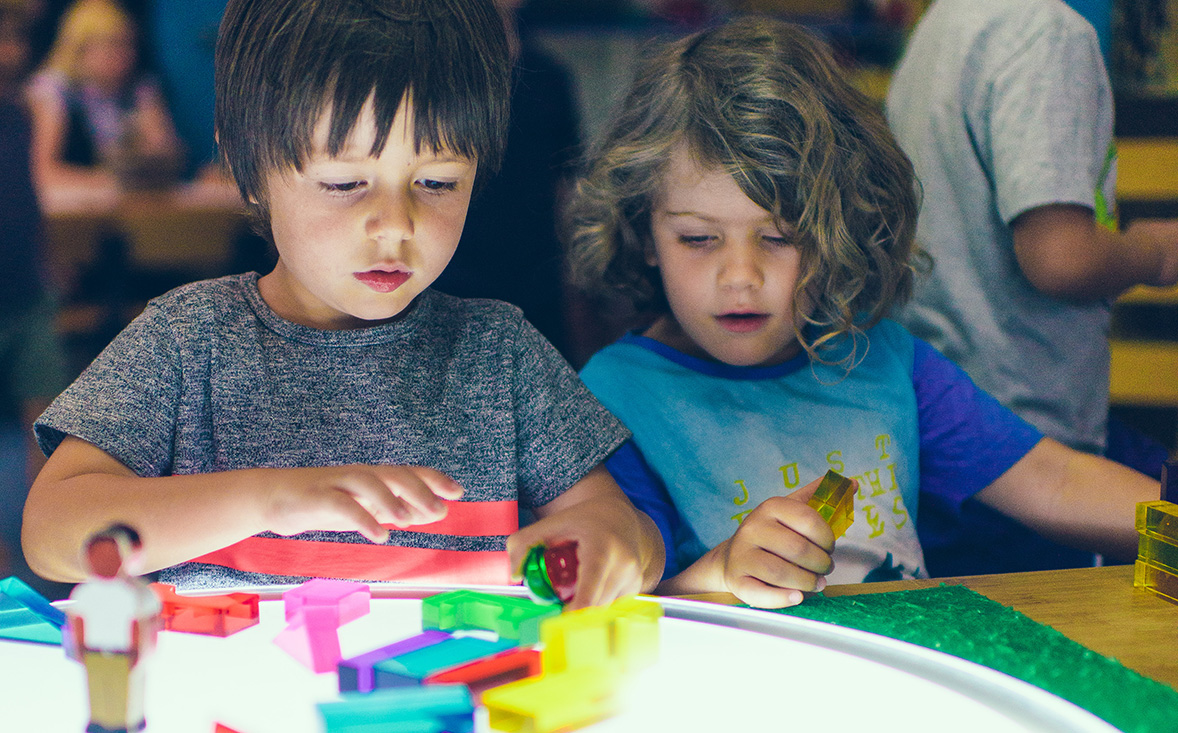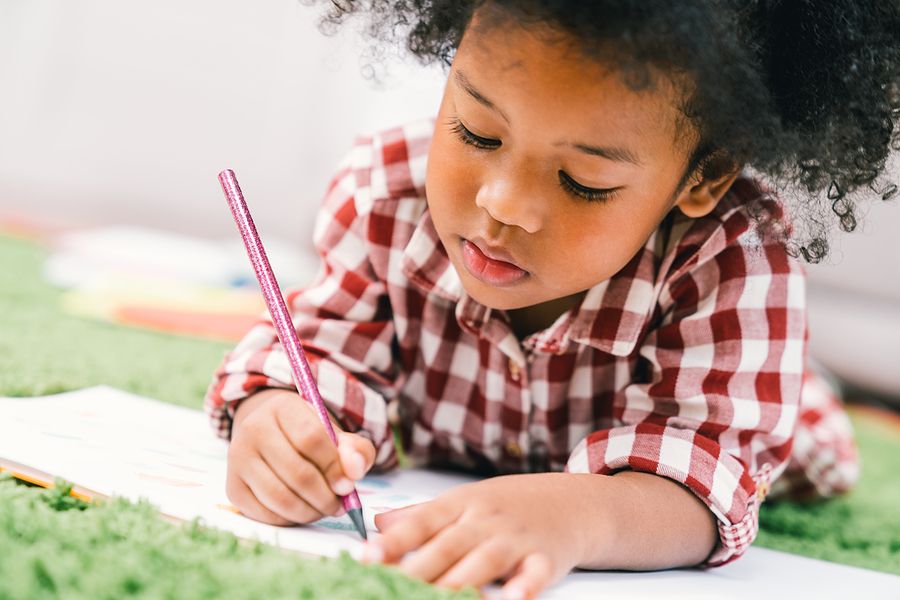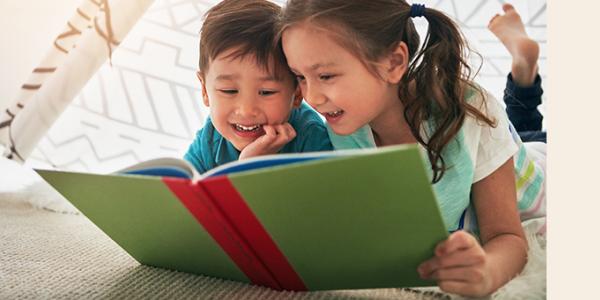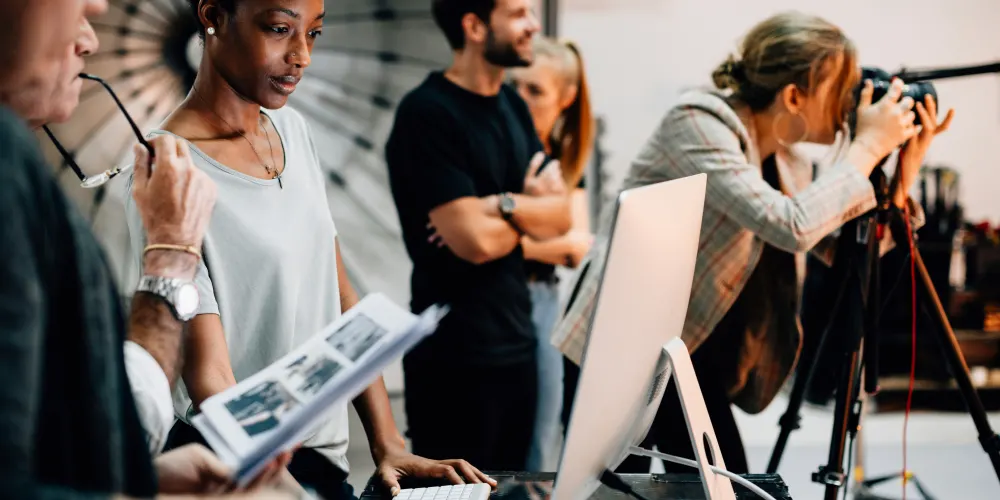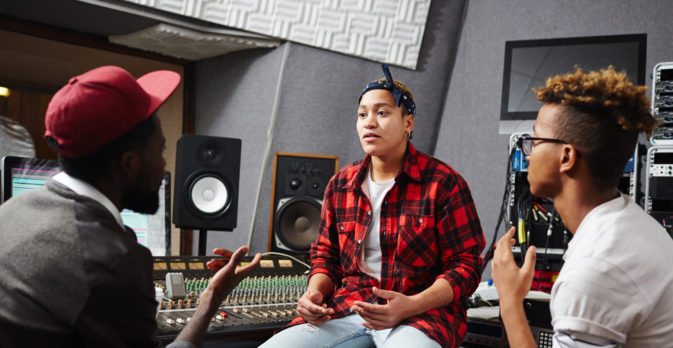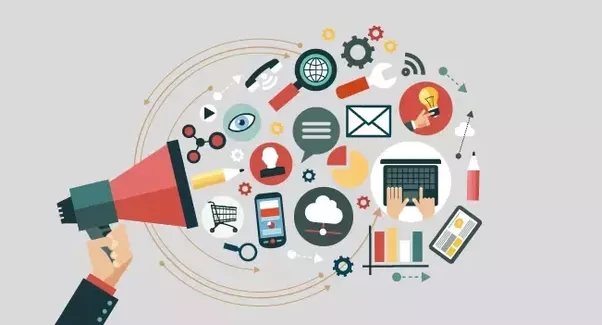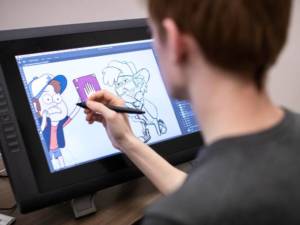Expressive Arts and Human Development
The Expressive Arts in Human Development program will provide students with skills needed for careers related to family and social services.

It combines psychology and the creative process to promote emotional growth. This approach uses the inborn desire to create—be it music, theater, visual art, dance, or other artistic form—as a tool to help initiate change.
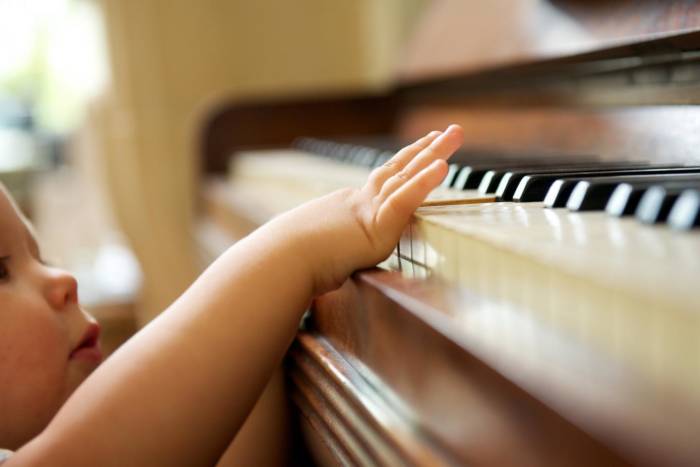
Through this sequence students will understand the major stages of human development — physical, social, emotional, and psychological; demonstrate understanding of and sensitivity to individual, ethnic, and cultural differences among individuals and families; explore a variety of community-based human service agencies and careers; be prepared to enter undergraduate programs in the expressive arts and related fields and demonstrate effective communication skills, decision making strategies, and problem solving techniques.
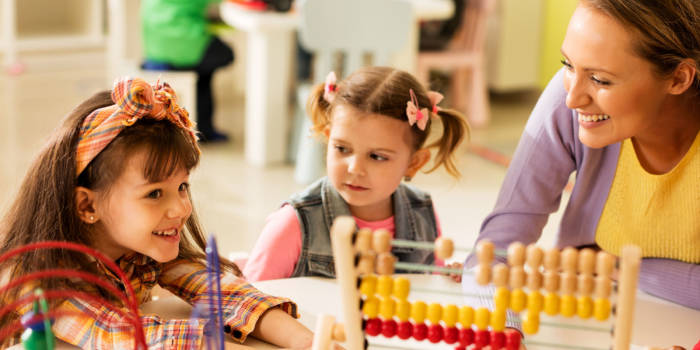
Program Requirements
All students accepted in the Expressive Arts & Human Development program are required to take 6.0 Core Credits that include: Expressive Arts in Human Development I -Integrated lab: The Art of Wellness: Visual Arts, Expressive Arts in Human Development II -Integrated lab: Responding to Sound: Music and Voice, Expressive Arts in Human Development III -Integrated lab: The Act of Health: Drama and Performance, Expressive Arts in Human Development IV -Integrated lab: Health in Motion: Dance and Movement, Crafting Health: Craft and Creative Media, Inspired by Nature: Outdoor Environments, Healing Spaces: Indoor Environments, Creative Expressions: Story Writing, Poetry and Journaling, and Oral Interpretation of Children’s Literature.
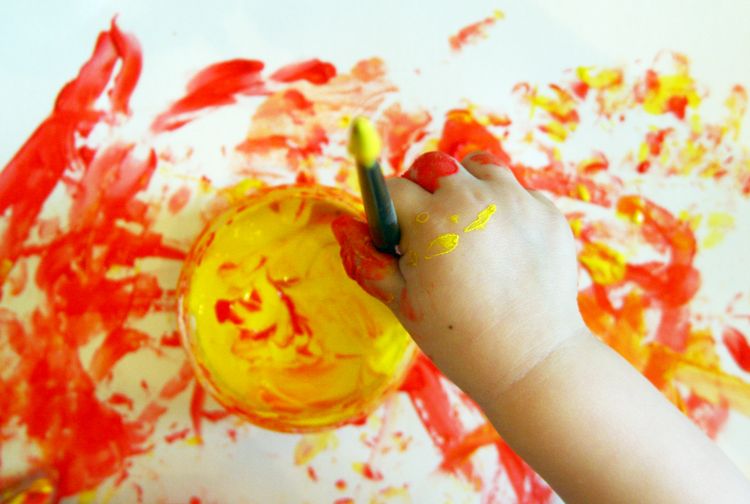
Expressive Arts in Human Development I: Integrated Lab - The Art of Wellness: Visual Arts
Prenatal growth and development provide the foundation for overall human growth and development. Through this content students will gain understanding of various factors that influence prenatal growth and development. This class will provide opportunities for students to apply communication, leadership, management, and thinking skills to prenatal development and early human development.
Lab Component:
The aim of the creative arts lab in this course will be to introduce students to the applied use of creative visual practices including drawing and painting, photography and sculpture. Students will examine theories and models of art in a human development context from an international and cross-cultural perspective. Through sharing of experiences, group work, and art activities, students will increase their understanding of the history, theory, practice, and applications of art in various settings. Central to the learning will be many hands-on visual arts activities including contour drawing, mandala making, photography exercises, clay sculpture and assemblage, aimed at introducing the key principles of visual arts-based practices in human development. Students will examine the visual arts from a developmental perspective and as a culminating project, students will develop a proposal for a visual arts project for the very young child and their caregiver.
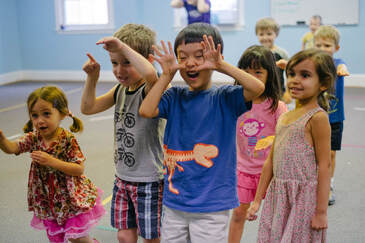
Expressive Arts in Human Development II: Integrated Lab - Responding to Sound: Music and Voice
The purpose of this class is to identify the developmental needs of children. Students will explore methods of meeting these developmental needs by providing a nurturing environment for children. Students will put into effect strategies that promote children’s optimal growth and development. This content topic will provide opportunities for students to apply communication, leadership, management and thinking skills to the study of childhood.
Lab Component:
In this applied lab students will have the opportunity to learn about interactive drama and performance from both a viewer’s perspective and as a participant. Topics covered will include role-play for healthy relationship building and self-expression, and practices of ritual and celebration. Students will use play, embodiment, projection, role, story, metaphor, empathy, distancing, witnessing, performance, and improvisation to learn how to make meaningful change. Students will learn creative drama techniques that teach improvisational acting skills used in drama therapy. Creative dramatic activities will include theatre games, storytelling, story drama, puppetry, and educational drama. A final project will be required and will target a school aged population.
This course is eligible for three credits through Molloy College in Creative Dramatics.

Expressive Arts in Human Development III: Integrated Lab - The Act of Health: Drama and Performance
This class will identify the developmental changes that take place during the adult years. The developmental milestones of adulthood include the establishment of independence, personal and professional relationships, and adapting to changing lifestyles. This class will provide opportunities for students to apply communication, leadership, management and thinking skills to the study of adulthood.
Lab Component:
Students in this lab will explore instrumental, vocal and recorded sound as creative mediums used in expressive arts in community health contexts. A wide variety of topics will be covered including ambient music and meditative sound, individual and choral singing and rhythm-based practices such as drumming. Students will examine some of the health benefits of music-based practices such as listening, breathing and singing and be introduced to a selection of artists who create music within therapeutic contexts.
A final project informed by the healing dimensions/beliefs drawn from Native American music will be required.
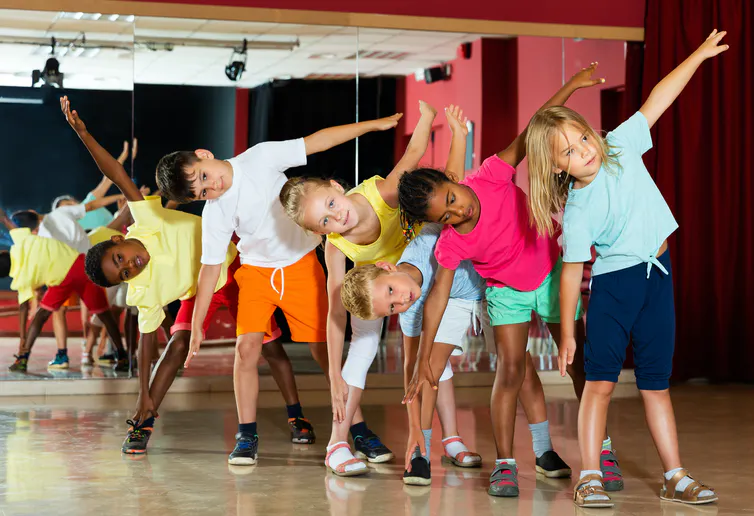
Expressive Arts in Human Development IV: Integrated Lab - Health in Motion: Dance and Movement
The population of aging adults is greater than ever before and is expected to increase. Many individuals in this period of life continue to be healthy and actively engaged in family, workplace, and community activities. Complex issues influence the overall health and well-being of those in the elder years. This class will provide opportunities for students to apply communication, leadership, management, and thinking skills to the understanding the choices and challenges of individuals during the elder years.
Lab Component:
Students in this class will explore the power of using their bodies as vehicles of expression and the many physical benefits of dance and movement. Participants will examine human movement that includes the historical development of movement from ancient through contemporary cultures. Physiological, sociological, and psychological principles affecting human movement are also included. Analysis of movements, prevention of injuries, conditioning and relaxation techniques will be examined. Topics covered will include the histories and concepts behind dance movement therapies, the role of traditional and modern dance forms in clinical and psychotherapeutic contexts. Amongst the many topics explored will be new practices in contemporary dance that explore non-traditional approaches.
Students in this class will be exposed to a rigorous Dance for Parkinson’s Teacher training with the acclaimed Mark Morris Dance Company which may yield a certification for those who complete all the requirements.
This course is eligible for three credits through LIU Post.

